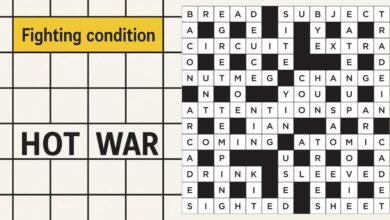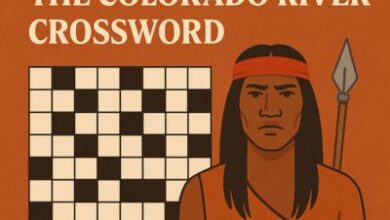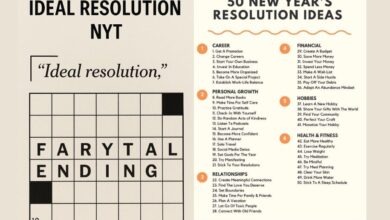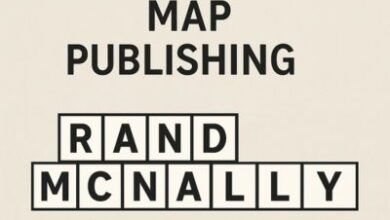“Be of Good Cheer” in the NYT Mini Crossword: What It Means, Why It Matters
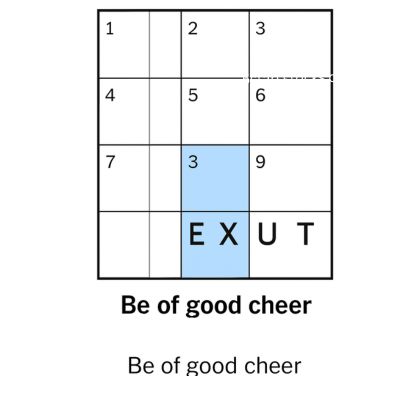
When you search for “Be of good cheer NYT”, you’re most likely seeing quick puzzle-solver pages or blogs referring to a popular clue from The New York Times Mini Crossword.
On November 11, 2024, the Mini Crossword included the clue “Be of good cheer”, and the answer was EXULT.
But beyond the simple curiosity of “what’s the answer,” this little phrase opens a window into crossword culture, vocabulary, and how simple clues can carry a deeper meaning. In this article, we’ll unpack everything about it — the clue, the answer, the context, and why this phrase resonates far beyond one small puzzle box.
1. The Puzzle Context: NYT Mini Crossword
The New York Times Crossword is iconic among word-game enthusiasts. The full-sized daily crossword is famous for its clever clues, layered wordplay, and rich cultural references.
However, the NYT Mini Crossword is a shorter, faster version — usually a 5×5 grid that gives solvers a few moments of linguistic challenge.
Each clue in the Mini carries extra weight because there are fewer letters and crossings to help. On November 11, 2024, one of these clues stood out:
3-Down: “Be of good cheer” → Answer: EXULT (5 letters)
That’s it. A simple clue, but one that captured the attention of thousands of players. When solvers got stuck, they searched “Be of good cheer NYT,” which led to puzzle blogs, word-game sites, and discussions online — all revolving around this one elegant little clue.
2. The Clue and the Answer: “Be of Good Cheer” → EXULT
Let’s look at the connection between the clue and the answer.
The clue “Be of good cheer” suggests a verb meaning to be happy, rejoice, celebrate, or feel joyful.
The answer EXULT fits perfectly. It’s a five-letter verb meaning “to show or feel a lively or triumphant joy.”
The dictionary definition of exult is:
“To show or feel elation or jubilation, especially as the result of a success.”
This is exactly what “be of good cheer” conveys — a burst of inner joy or outward celebration.
Why EXULT and not a simpler word like “REJOICE” or “BEGLAD”?
Because Mini Crossword answers must fit the number of squares (five letters), and “exult” matches both length and meaning perfectly.
The word EXULT is derived from Latin exsultare, meaning “to leap up” or “spring out.” The root suggests movement and exuberance — joy that can’t stay hidden. That makes it a more vivid and expressive choice than “be happy.”
So, in just one clue, the NYT Mini introduced players to a classic but underused English verb — a perfect blend of challenge and vocabulary enrichment.
3. Why This Clue Resonates
The clue “Be of good cheer” might seem simple, but its appeal goes deeper. There are three reasons why this particular entry stands out.
(a) Mini puzzles have big cultural reach
The NYT Mini Crossword reaches millions of players through the New York Times Games app. Every day, thousands of solvers complete it — or look up help online.
Clues like this one often get reposted across puzzle-solving blogs, social media accounts, and discussion threads. A single five-letter clue can appear on dozens of sites within hours.
That’s why “Be of good cheer NYT” trends as a search phrase — because thousands of people encounter the same clue and look for confirmation.
(b) It’s a moment of vocabulary discovery
Crossword clues introduce solvers to words they might not use daily. “Exult” is a perfect example — rare in conversation but common in literature, poetry, and hymns.
By solving this clue, players not only finish their puzzle but also expand their vocabulary. It’s a small but satisfying learning moment that makes crosswords so enduringly popular.
(c) It reflects how puzzles live online
Today’s crossword culture lives on the internet. The moment a Mini is published, blogs and solver communities post hints, solutions, and analyses.
YouTube creators even make short clips explaining the day’s trickiest clues. Within hours, the clue “Be of good cheer” was everywhere — proving that even small puzzles can make big waves online.
4. How to Use This – For Solvers, Bloggers, and Educators
This single clue offers valuable takeaways for different audiences.
For solvers:
- If you see “Be of good cheer” in a 5-letter clue, the answer is EXULT.
- In longer crosswords, other possibilities include REJOICE (7 letters) or CELEBRATE (9 letters).
- Remember the nuance: “exult” isn’t just to be happy — it’s to revel in happiness, often as a reaction to victory or success.
For bloggers or content creators:
- Clues like this are excellent opportunities for quick, search-friendly content.
- But don’t just post the answer — add value by explaining word meanings, origins, and crossword context.
- Articles that combine answer explanations with insights into puzzle design tend to attract and retain more readers.
For educators and vocabulary enthusiasts:
- Use this example in lessons about synonyms and shades of meaning.
- Discuss how “exult,” “rejoice,” “celebrate,” and “be glad” differ in tone.
- You can even use crossword clues like this to build fun vocabulary exercises for students.
5. The Broader Phrase: “Be of Good Cheer” Beyond Crosswords
Outside puzzles, the phrase “be of good cheer” has a long and meaningful history. It’s found in classical literature, songs, and most notably in biblical and spiritual contexts.
In the Bible, the phrase appears in verses like “Be of good cheer; I have overcome the world.” It carries a message of hope, comfort, and encouragement — urging people to stay strong and positive even in difficult times.
Over the centuries, it became a phrase used in holiday songs, church sermons, and motivational writing. “Be of good cheer” means not just “be happy,” but “find courage and joy even when life is hard.”
That’s part of what makes it such an elegant crossword clue — it draws on familiar emotional language while still feeling elevated and classic.
6. The Power of the Word “EXULT”
Now, let’s focus on the answer itself: EXULT.
Meaning:
To exult is to feel or show triumphant joy. You don’t just smile quietly — you celebrate loudly, inwardly or outwardly.
Etymology:
“Exult” comes from the Latin exsultare, meaning “to leap up.” The root implies exuberance, motion, and energy — joy that cannot be contained.
Usage:
Examples in literature and speech include:
- “They exulted in their victory.”
- “She exulted at the news of her promotion.”
- “The fans exulted as their team lifted the trophy.”
Why crossword editors love it:
- It’s concise (only 5 letters).
- It’s expressive but not obscure.
- It teaches a slightly advanced word without being unfair.
- It pairs perfectly with the clue “Be of good cheer.”
So, the next time you encounter this phrase in a crossword, you’ll recognize both the literal and emotional layers behind it.
7. The Art of Crossword Construction
Crossword clue writing is a craft. Editors like Will Shortz and constructors carefully choose words that fit the grid but also make the puzzle engaging.
Here’s what stands out about the clue “Be of good cheer”:
- It’s straightforward — there’s no pun or trick, fitting the easy Monday-Mini level.
- The clue’s phrasing feels warm and timeless, appealing to a broad audience.
- The answer “EXULT” is satisfying to fill in — uncommon enough to feel clever, but familiar enough to recognize.
Mini Crosswords, by nature, are short — every letter matters. So “EXULT” hits the sweet spot of challenge and reward. It’s one of those answers that make solvers feel smart for knowing it.
8. What “Be of Good Cheer NYT” Teaches About Modern Puzzle Culture
This single clue reflects a bigger story about how puzzles are consumed and shared today.
- Instant accessibility: Players can check the NYT Games app, solve the puzzle, and see the leaderboard all within minutes.
- Community sharing: Blogs, solver sites, and social posts immediately share answers and hints.
- Search-driven content: Many people don’t wait until the next day for the answer — they search “be of good cheer NYT,” and find the solution instantly.
This feedback loop between puzzle-makers and online communities keeps crossword culture alive and evolving. A clue like this may seem small, but it’s part of a global conversation among millions of solvers.
9. A Word Lover’s Perspective
From a word-lover’s angle, “Be of good cheer” and “EXULT” are a perfect pairing.
The clue invites warmth and positivity; the answer bursts with energy and joy.
There’s something satisfying about learning or recalling a word like “EXULT” through play. It reminds us that crosswords aren’t just entertainment — they’re quiet acts of learning and discovery.
Even if you never use “exult” in daily conversation, the next time you see a friend celebrating something, you might think, “They’re exulting right now.” That’s the beauty of words — once you know them, they stick with you.
10. Common Questions About “Be of Good Cheer NYT”
Q: When was this clue used in the NYT Mini Crossword?
A: On November 11, 2024.
Q: What was the answer?
A: EXULT — a five-letter verb meaning “to be extremely joyful.”
Q: Are there other valid answers for “Be of good cheer”?
A: In other puzzles, you might see REJOICE or CELEBRATE depending on grid length.
Q: Why did the NYT Mini choose EXULT?
A: Because it fits the 5-letter requirement, perfectly matches the clue’s tone, and introduces a lively, expressive word.
Q: Why does everyone search this phrase online?
A: Many solvers look up the clue after playing the NYT Mini Crossword. Blogs and crossword-help sites post the answer daily, so the search phrase “be of good cheer NYT” has become common online.
11. Final Thoughts
In a world where news, games, and words travel at lightning speed, a tiny crossword clue like “Be of good cheer” can still stop people for a moment — to think, to smile, to learn a word, to feel joy.
The answer EXULT isn’t just a solution; it’s a celebration in itself. It represents triumph, happiness, and the uplifting energy behind the clue.
That’s why this clue caught attention online — and why it deserves a deeper look. It connects modern puzzle culture with timeless language and optimism.
Here at Newsta, we celebrate these small intersections of words and wonder. Whether it’s a crossword clue, a trending phrase, or a beautiful bit of English, there’s always more meaning hidden between the letters.
So next time you see “Be of good cheer”, remember: the answer is EXULT — and maybe take a moment to exult in the joy of learning something new.
